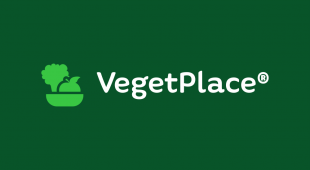Vegetarian and Vegan
Vegetarians and Vegans don’t eat products or by-products of animal slaughter, even so talking about Vegan and Vegetarian is sometimes confused to people, but the difference is simple:
Vegetarian

According to The Vegetarian Society, Vegetarians don’t eat fish, meat or chicken. So a vegetarian diet does not include:
- Meet, poultry, fish and seafood.
- Insects.
- Stock, fat or animal rennet.
But the vegetarian diet can include:
- Vegetables, fruits, pulses and grains.
- Nuts and seeds.
- Eggs, dairy products and honey.
- Lacto-ovo-vegetarian diet: Eating dairy products and eggs.
- Lacto-vegetarian diet: Adding only dairy products to your diet, neither meat nor eggs.
- Ovo-vegetarian diet: Adding only eggs to your vegetarian diet.
- Pescatarian: Adding only fish to your vegetarian diet.
Vegan
According to Vegan.com the word Vegan, is defined as a diet free of meat, dairy products and eggs, now it refers to any item from clothes to cleaning products made without animal by-products. So we can say that Veganism is a strict natural lifestyle in which we should avoid all kind of animal products and by-products not only involving foods but every animal by-product item as we mentioned above.

The Vegan Society quotes that Veganism is a philosophy and a way of living which seeks to protect animals, and on the other side, it seeks to develop and promote animal-free alternatives, for the benefit of animals, humans and the environment.
The Vegan Diet is very diverse and you can eat:
- All kinds of fruits an vegetables.
- Nuts, grains and seeds.
- Pulses, legumes and beans.
- Starchy foods (fibre foods e.g. Oats, Potato with skin, wholemeal bread, wholewheat noodles, brown rice).
- Calcium-fortified soya yoghurt alternative.
Vegetarian vs. Vegan – Comparative Table
| ITEMS: | Vegetarian | Vegan |
| Eating products that are not of animal slaughter. | YES | YES |
| Eating milk, cheese, yoghurt, and dairy products. | YES | NO |
| Avoid clothes or other products derived from animals. | NO | YES |
| It’s a philosophy of life protecting animals and the environment. | NO | YES |
Source: Own elaboration
In Conclusion:
Vegetarian diet is a more flexible diet than Vegan, and for technical definitions we can read at The European Vegetarian Union Position Paper, which paragraph (2)-page 4 shows a list where we can understand that Vegetarians can consume animal by-products, but these don’t involve the slaughter of animals.
Vegan is “the strict vegetarian version”, so vegans will never consume foods of animal origin, they don’t consume anything of animal by-products and will never use/wear animal by-product clothes or anything related with animals. Moreover Vegans take seriously their lifestyle as a philosophy of life protecting animals, humans, and the earth environment.



